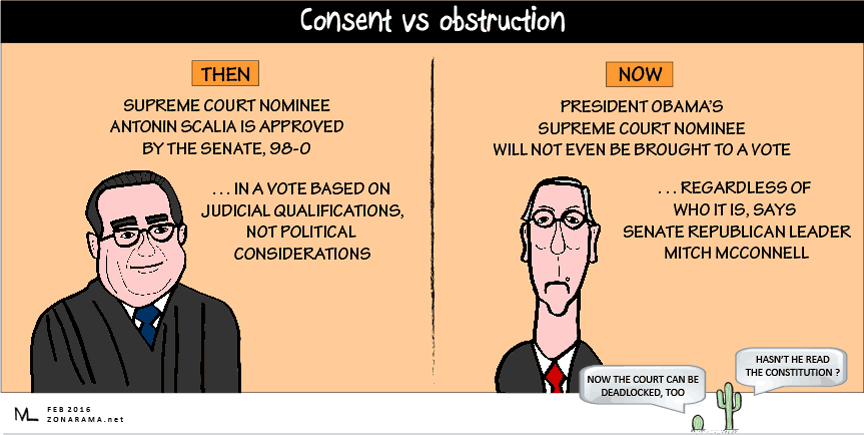
Note to wife:
In the old days (before, say 1994), when a president nominated a Supreme Court justice, the Senate would fulfill its constitutional duty to “advise and consent” on the president’s selection. That meant holding public hearings to determine the candidate’s qualifications and “judicial temperament.” Then the Senate would vote to approve the nominee, routinely by a lopsided margin.
Presidents historically tend to nominate someone that reflects their own judicial philosophy, and the Senate customarily has granted the president that right, regardless of political considerations. In recent decades, however, this process has become more contentious and political views more important.
Now, Senate Majority Leader Mitch McConnell, a Republican, says he won’t hold hearings on President Obama’s nominee – whoever it is. He said we should wait and “let the new president” select a Supreme Court nominee, hoping that a Republican will be elected in November.
There is no precedent for this action and some say it violates the Constitution. Even President Reagan, who is almost a godlike figure to many Republicans, nominated a justice in his final year of office, and the Senate dutifully approved him.
The current Supreme Court seems to be evenly divided on many issues. Without a replacement on the bench for Justice Scalia, it is clear that many cases this year will result in a 4-4 tie.
People say there is “gridlock” in Washington because the president and congress are of different parties. They don’t want to compromise so they’re unable to get much done. Now the Senate leader has extended this paralysis to the Supreme Court.
